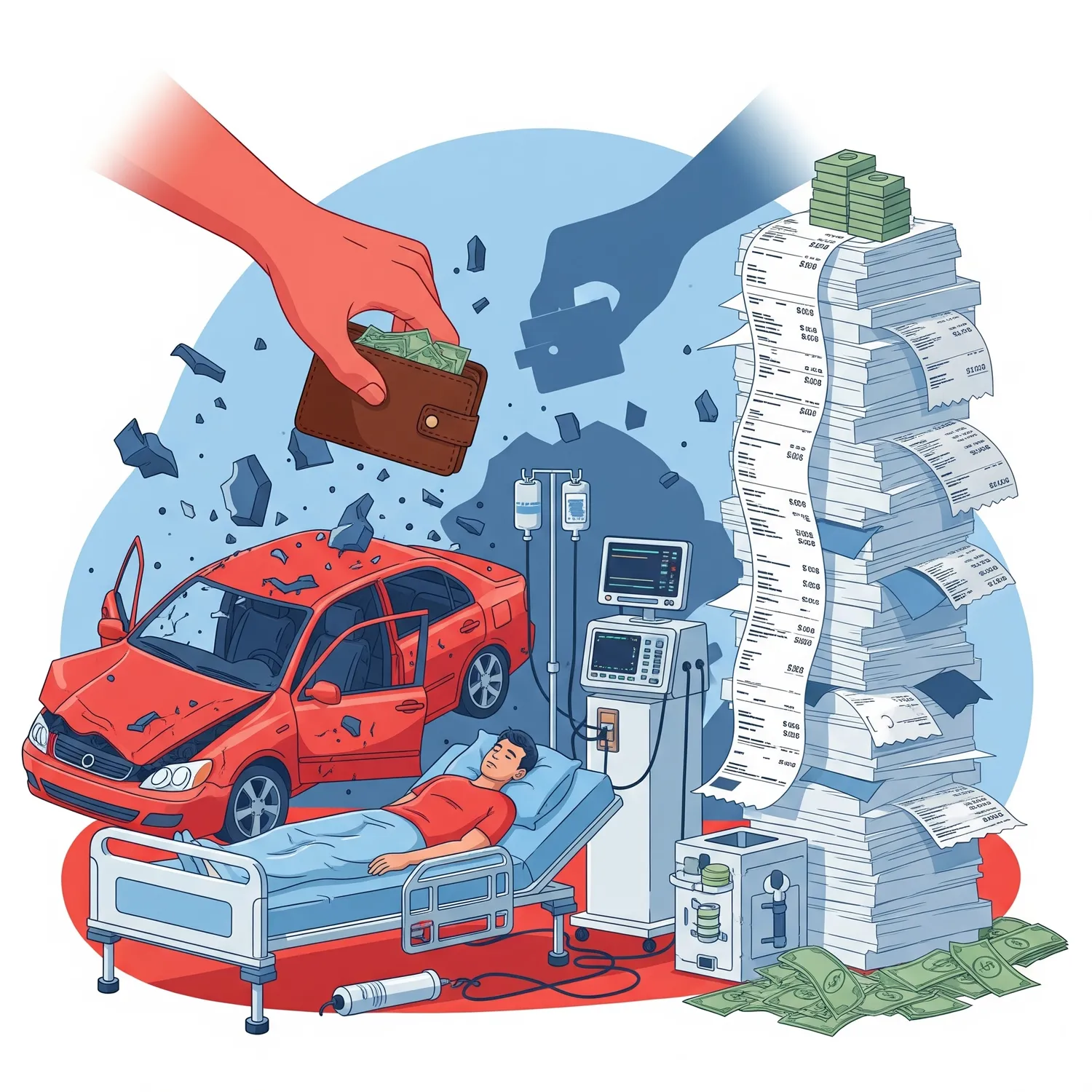

A traffic accident not only involves material damage to vehicles but also, very frequently, personal injuries. The medical care resulting from these injuries incurs significant expenses that, in the context of compensation, are a fundamental component. Understanding how these expenses are managed and claimed is vital for victims.
Who Initially Covers Medical Expenses?
In Spain, the coverage of medical expenses after a traffic accident can vary depending on the situation:
- Compulsory Motor Vehicle Insurance (SOA) of the at-fault vehicle: In most cases, if an at-fault vehicle is identified, its compulsory insurance will cover the medical expenses of the accident victims. This includes the non-at-fault driver, occupants of both vehicles, and pedestrians.
- Own vehicle insurance (at-fault driver): If the driver is at fault for the accident and has sustained injuries, their medical expenses are not covered by the vehicle's third-party SOA. For them to be covered, they would need to have driver's insurance, which is an optional coverage.
- Public Health System (SAS/SNS): If one goes to a public health center or hospital, the cost of care will initially be covered by the public system. However, the SAS/SNS has the right to subsequently claim these expenses from the insurer of the vehicle responsible for the accident.
- Mutual Societies Collaborating with Social Security or Private Insurance: If the injured person is an employed worker and the accident is considered "in itinere" (going to or from work), their work accident mutual society could cover the expenses. Similarly, if one has private health insurance, it could initially cover the costs, with the right to claim from the responsible insurer.
Types of Reclaimable Medical Expenses:
Compensation for medical expenses is not limited solely to hospital bills. It can include a wide range of concepts:
- Hospital and outpatient care: Admissions, surgeries, consultations, diagnostic tests (X-rays, MRIs, CT scans, etc.).
- Rehabilitation and physiotherapy treatments: Sessions necessary for injury recovery.
- Medications: Prescriptions and drugs prescribed by medical professionals.
- Technical and orthopedic aids: Crutches, wheelchairs, prostheses, splints, etc.
- Dressing materials: Bandages, gauze, disinfectants, etc.
- Travel: Transportation costs to attend medical appointments, rehabilitation sessions, or tests. It is crucial to keep parking tickets, fuel receipts, or public transport tickets.
- Home rehabilitation or home adaptation: In cases of serious injuries requiring special adaptations.
- Psychological assistance: If the accident has caused psychological sequelae or emotional disorders.
Claim Process and Essential Documentation:
To effectively claim medical expenses, it is essential to follow these steps and gather the appropriate documentation:
- Immediate medical attention: See a doctor as soon as possible after the accident, even if injuries seem minor. The initial report is crucial for linking the injuries to the incident.
- Collection of medical reports: Keep all emergency, hospitalization, consultation, diagnostic test, and rehabilitation reports. These documents are the basis for proving the causality of the injuries and their evolution.
- Invoices and receipts: Keep all invoices and receipts for treatments, medications, therapies, and any expenses directly related to the injuries.
- Amicable agreement or police report: Having the accident report or police report will facilitate the identification of the responsible insurer.
- Communication with the insurer: Inform your own insurer and, if known, the responsible insurer about the injuries and the need for medical attention.
- Medical assessment: The insurer may request a medical assessment by its own professionals. It is advisable to have an independent medical expert evaluate the injuries and their extent to counter reports if necessary.
- Negotiation or judicial route: With all the documentation, negotiation with the insurer begins to obtain compensation. If an agreement is not reached, the judicial route can be chosen.
Key Tips:
- Do not delay medical attention: Delay can make it difficult to prove the link between the accident and the injuries.
- Document everything: Any report, invoice, ticket, or communication is vital. Lack of documentation can prevent reimbursement of an expense.
- Legal advice: Having a lawyer specializing in traffic accidents is highly recommended. An expert can guide the victim through the process, ensure that all relevant expenses and damages are claimed, and negotiate effectively with insurers.
In conclusion, medical expenses are an intrinsic part of traffic accident compensation. Adequate knowledge of how they are managed and meticulous collection of documentation are essential to ensure that the victim receives fair compensation for the consequences of a road accident.